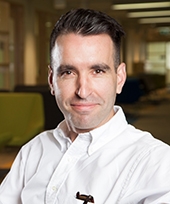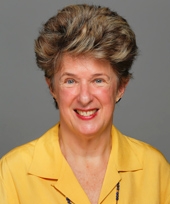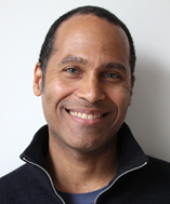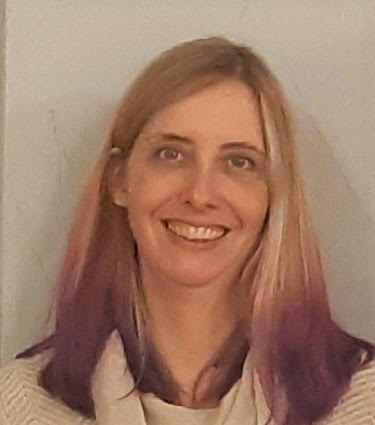Introducing you to some new faces, and familiar faces in new roles
Over the past few months, you may have noticed a few emails introducing you to new members of the staff at the Faculty. This article will introduce you to some of the new faces (or the same faces in new roles) around the law school.
Christopher Essert, Associate Dean, JD Program

Associate Dean Essert graduated from the JD Program at U of T Law in 2005 and returned to the Faculty to teach in 2018. In his new role, Essert works closely with Assistant Deans Sara Faherty and Alexis Archbold to administer the JD program. This means working with Faculty to set up the course listings, working with students on their concerns about their classes, and overseeing co- and extracurricular activities. His main goal is to “ensure that all of our students have the best experience possible, and to keep things running smoothly and effectively.”
Associate Dean Essert is teaching small group tort law this semester, and large group property law next semester. This fall, he has also hosted Q & A sessions with Assistant Deans Faherty and Archbold to share information and answer questions about the Faculty’s physical distancing efforts and the shift to online learning.
Rebecca Cook, Interim Director of the International Human Rights Program (IHRP)

Professor Emerita Cook was the founding director of the IHRP in the late 1980s and returned this month as Interim Director to develop the possible future directions of the IHRP. Cook says her main goal in the interim role is “to do a review of the program to determine what we have done well and what we might do better moving forward.” She plans to speak with various constituencies, including students, alumni, and faculty members to gather insights on how to move the program forward. Cook also plans to connect with human rights programs at other law schools to share learnings.
In her interim role, Cook plans to support the ongoing work and looks forward to working with Research Associate, Ashley Major, who is overseeing the four working groups and leading the new Venezuela Accountability Project. The program has grown “by leaps and bounds” since Cook started it and she wishes to share the IHRP’s impressive accomplishments with the law school community.
The 2021 IHRP fellowship program will be proceeding this year and will be coordinated by Kim Snell, Manager of Experiential Education.
Terry Gardiner, Student Mental Health & Wellness Program Manager

Gardiner is a social worker trained as an individual and family therapist who has worked at U of T for 12 years supporting students in a number of capacities. He joins the Faculty at a time when the COVID-19 pandemic has challenged students’ mental health and when we are experiencing a global awakening “to the prevalence of racial injustice and its impact on our society,” says Gardiner.
In his role as Student Mental Health & Wellness Program Manager, Gardiner is responsible for: working with staff, students, and faculty members to guide the evolution of the Faculty’s mental health strategy, developing and implementing innovative programming, and assisting students to effectively navigate the mental health and wellness resources available to them. He plans to respond to the needs of the community as “it is important […] to provide culturally responsive, relationship-based mental health services that support positive outcomes for students.”
Gardiner says that “this role is an exciting opportunity […] to focus on mental health, and work collaboratively with the law school community to explore what wellness looks like for our many diverse community members. [He] aims to work with students, staff, and faculty so that together [they] can enhance the culture of caring within the law school.”
This semester, Gardiner facilitated the training for mentors in the Peer Mental Health Support Program and the Peer Mentorship Program. He has also connected students with relevant mental health and well-being programming at the Faculty and the University at large.
Ivy Lam, Director of the Investor Protection Clinic
Lam joins the Faculty to lead the new Investor Protection Clinic which will provide free legal services, public legal education, and experiential learning opportunities to those of vulnerable communities who have suffered harm, or are at risk of suffering from financial loss relating to their investments.
The Investor Protection Clinic is home to three working groups this year: Project CLEO, Project Explorer, and Project SRO. Members in Project CLEO produce content for Community Legal Education Ontario (CLEO)’s website to provide investment protection information and resources for the public. Project Explorer aims to create a visual map which identifies different administrative agencies, regulators, self-regulatory organizations, and stakeholders which regulate investments and sets out the different routes that retail investors may take to seek recourse for financial loss. The students in Project SRO will critically assess the recent Canadian Securities Administrators (CSA) consultation paper on self-regulatory organization (SRO) from the perspective of investor protection.
Jacob Reynolds (2L) and Shawn Lallman (2L) are the working group leaders for Project SRO and describe it as a highlight of their year so far. “I wanted to get involved because when I started investing myself, I realized that there is not a lot you can do to hold companies accountable because it’s a very complicated process,” says Lallman.
Reynolds was originally a finance major in undergrad. When he was growing up, his father struggled with getting relief from investments, so it is “one of the ways I wanted to help give back with my legal degree.”
Joshua Morrison, Director of the Future of Law Lab

Morrison is a lawyer by trade and joins the Faculty to lead the new Future of Law Lab which sits at the intersection of law, innovation, and technology. Previously, he worked in a legal technology start-up in a hybrid role as a business development strategist and a manager of a team of lawyers, financial specialists, and software developers.
In the role, Morrison plans to champion all of the existing technology initiatives at the University of Toronto and Faculty of Law and plans to “develop initiatives that will introduce students to new ideas and skills that will augment their in-class training.” Together with Professor Anthony Niblett, the Lab’s Academic Advisor, Morrison plans to create an environment “where students, academics, lawyers, and the community can explore questions about the evolution of and, for lack of a better word, future, of law and the profession.”
Students do not have to be experts in software development or artificial intelligence to be a part of the Lab’s initiatives. This fall, the Lab is hosting two events as part of its inaugural Speaker Series: one featuring Maura Grossman (speaking about fundamentals of AI and issues of bias) and another featuring Professor Gillian Hadfield in conversation with Niblett. While Morrison is still in the planning stages for what the winter semester will look like, he anticipates initiatives around topics like legal design, design-thinking, or intellectual property.
Karen Bellinger, Acting Executive Director of Downtown Legal Services (DLS)

Bellinger joined DLS as a staff lawyer in 2007 and supervised students in the criminal law and academic offences division. As the Acting Executive Director, Bellinger oversees the administrative tasks that keep the clinics running, and facilitates the clinic students’ Monday evening seminar classes. Bellinger says it has been “a busy time […] especially given the challenges posed by the pandemic. But, having wonderful staff lawyers and support staff has made my job much easier.”
Charlie Williams, On-Location Student Mental Health Counsellor
Williams joins the Faculty as its embedded counsellor after Salima Jadavji’s position was eliminated last year. All of the on-location counsellors are hired centrally by Health & Wellness and assigned to different colleges or faculties. The idea is to have a designated counsellor who can build familiarity with a particular program. The position of on-location counsellor aligns with Williams, she says, because it ensures the “services provided are accessible to students as well as relevant and specific to people’s own lived experiences, communities, and diverse needs.”
Williams provides one-on-one counselling for students in areas such as: depression, anxiety, trauma, stress, loss, transition, identity, relational concerns, self-esteem, suicidality and building tools for emotion regulation and distress tolerance. She uses an integrative approach informed by several modalities in order to “engage, support and empower students from a trauma-informed, client-centered and anti-oppressive framework, to address the interpersonal and systemic barriers impacting their lives.”
To request an appointment, please call the Health & Wellness Centre at 416-978-8030 (select option “5”) and indicate your interest in receiving counselling with Charlie Williams at the Faculty of Law.





